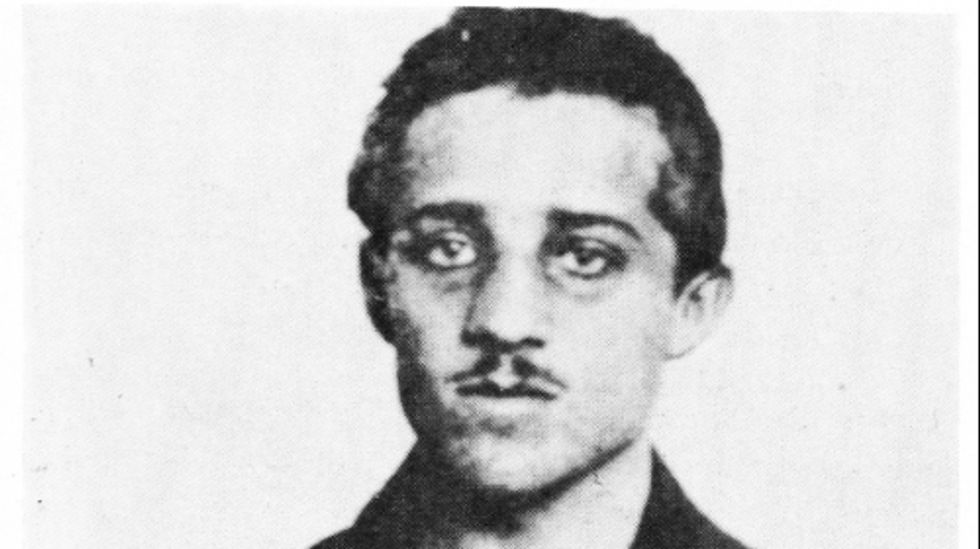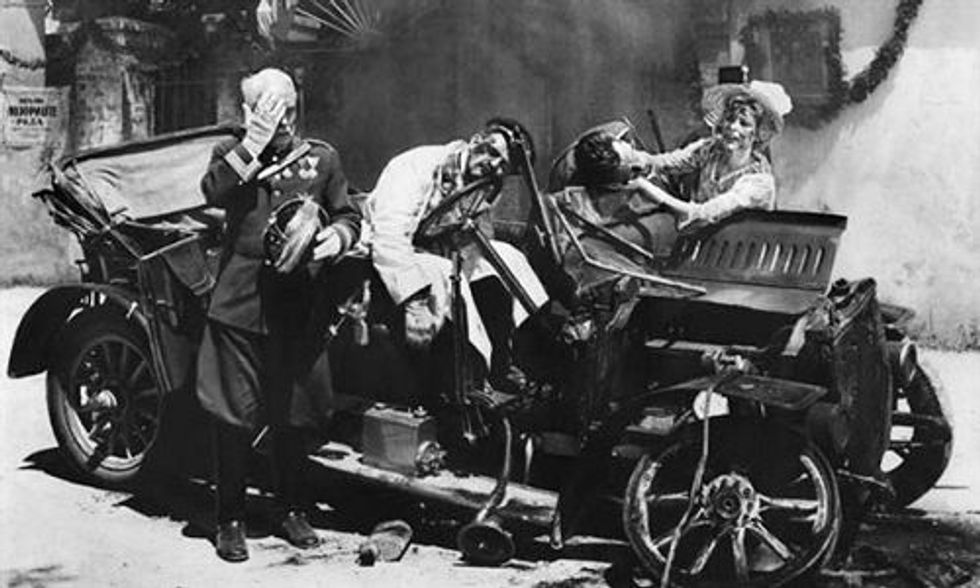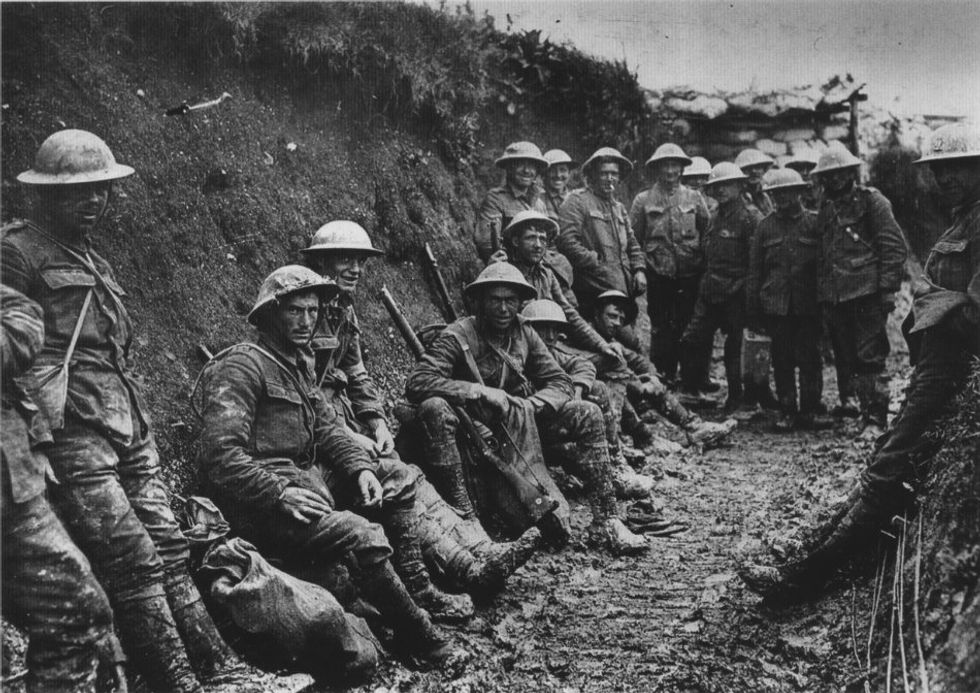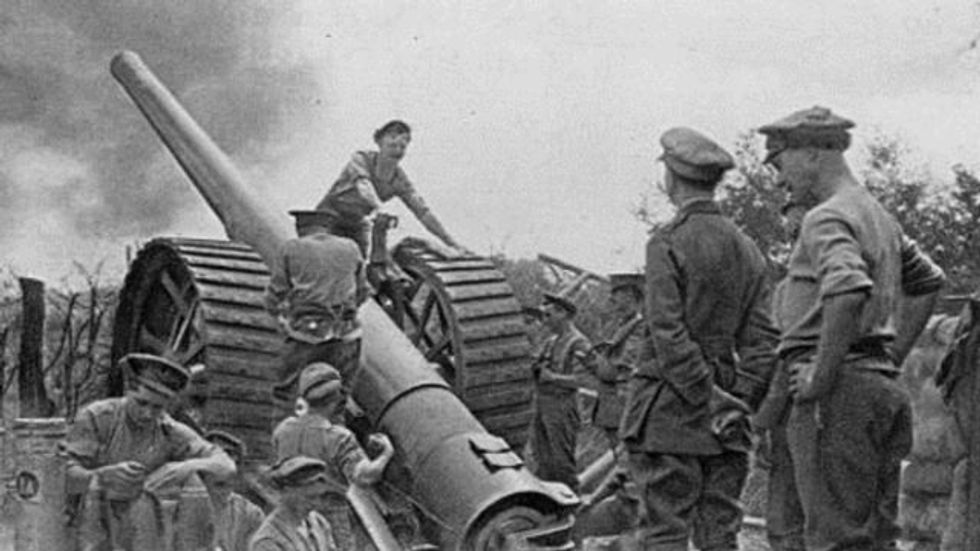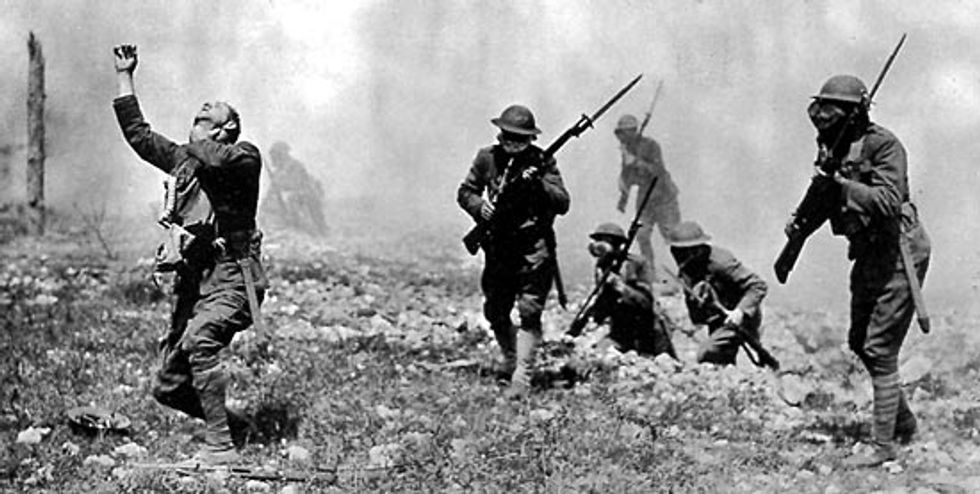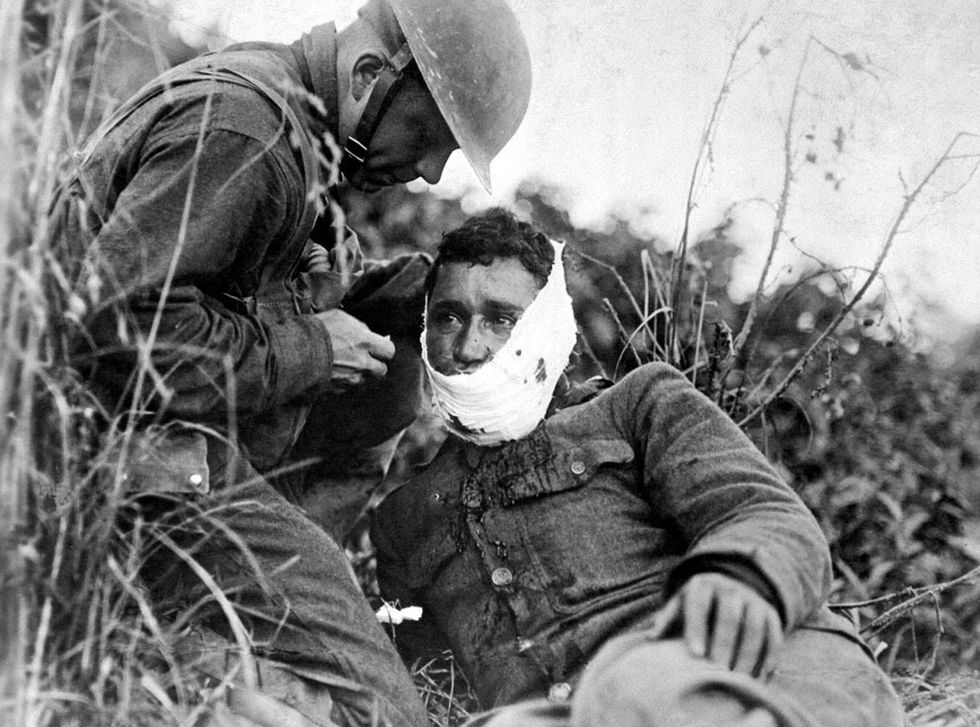I've always loved history. Just about everything humans have ever done or said is recorded somewhere, and sifting through it can tell us incredible stories about where we've been, where we are now and where we're going. Recently, I started listening to these Podcasts that examine some of the most compelling parts of human history, detailing the "extremes of the human experience." The series is called "Hardcore History" and is powerfully delivered with marvelous narrative ability and in excruciating detail by radio personality, amateur historian and political commentator Dan Carlin.
In his episodic retelling of World War I, "Blueprint for Armageddon," Carlin opens the story with one of the most interesting and thought-provoking pieces of history I've probably heard. He lists several candidates for the unofficial title of "most influential person ever," in terms of the individual impact they made on the course of human history. He mentions figures like Genghis Khan, Adolf Hitler, Alexander the Great, and others, citing the pivotal roles, nefarious or otherwise, that they played in the grand scheme of things.
But these guys are wannabes if we're talking about the scale of historical impact that this guy is personally responsible for. Carlin zeroes in on a young man from 20th century Austria-Hungary named Gavrilo Princip. For my fellow history buffs, I think you know where this is going by now. For the rest of you, keep reading and try to wrap your head around how a moment of sheer happenstance ended up costing tens of millions of people their lives and altered the entire geopolitical landscape of today's world.
Carlin prefaces Princip's story with something a little more familiar to modern Americans by talking about the Kennedy assassination. Imagine, he says, that Lee Harvey Oswald decided for one reason or another that he couldn't take his famous shot on that November morning in 1963. It was too windy, the sun was in his eyes, or maybe he had bad eggs for breakfast. Distraught with the missed opportunity, Oswald would pack up his Italian-made, bolt-action Carcano rifle and head to a local bar to numb some of his frustration with a drink or two. He sips on his beer, perhaps while listening to the radio broadcast of Kennedy's visit to Dallas and fumes over his failure. After taking some time to cool off, he finishes his drink, pays his tab, tips his cap to the bartender, and then steps back outside to see none other than President Kennedy on the sidewalk. By some dreadful miracle, Oswald would have a second chance to take his shot, and from point blank range.
These are the kinds of odds we're dealing with when we talk about Gavrilo Princip, the spark that lit the powder keg of World War I. Princip was a part of a group of Serbian nationalists that very much wished to separate themselves from the grips of Austria-Hungary. To show their defiance, they planned to assassinate the son and soon-to-be successor of the ruler of Austria-Hungary, Archduke Franz Ferdinand. They would strike in broad daylight in the streets of Sarajevo (the modern capital of Bosnia-Herzegovina) as the Archduke paraded the streets in an open-top car. Carlin mentions, of course, how eerily similar this was to Kennedy's assassination.
Their plan was to spread themselves out along the route of his motorcade, which was made public, hoping that one of the 20 or so men would get a clear shot at him. Eventually, that opportunity came when one of Princip's cohorts hurled a grenade at the open car where sat the Archduke and his wife. The grenade misses its mark and lands near the car immediately behind the Archduke's, where it explodes and injures several innocent people. The other conspirators escape, but the would-be assassin is apprehended after a cyanide pill he bites down on fails to kill him.
To the Serbians' dismay, their plot seems to be foiled. Afterwards they meet up at (you guessed it) a local bar to blow off some steam. After a few drinks, Princip bids his buddies adieu and strolls out onto the street. Here's where it all comes to a head. Everything we know to be true about most of the modern world, especially in Europe, will be decided over the next few minutes in Sarajevo on June 28, 1914. After the assassination attempt that left several innocent people gravely injured, the Archduke diverted from his route to visit the hospital where the victims were being treated in a gesture of good will. As Princip steps onto the sidewalk, the Archduke's car comes down the street and stalls right in front him. Princip sees his target, exposed on a silver platter just feet away, draws his pistol, shoots and kills the Archduke, and boom. World War I begins.
I'll give you a moment to collect your thoughts and consider the gravity of the situation that unfolded outside a hole-in-the-wall pub in Sarajevo a hundred years ago. What if Princip had decided to have one more drink? What if the Archduke took a different route to the hospital to visit the injured people? Well, I'll tell you what wouldn't have happened. World War I wouldn't have happened, World War II wouldn't have happened, and the six million Jews that were killed during the Holocaust may very well have been spared. A case could be made that the Korean and Vietnam Wars may not have happened, the Cold War would not have happened, and many of the souls lost in the conflicts between World War I and today might have lived long, happy lives.
Now, I want to talk a little more about the direct result of the Archduke's death, the start of World War I. From Carlin's narrative, we hear the accounts of soldiers that fought in places like the Western Front, where some of the worst fighting in human history occurred, we can see that this was arguably the most terrible war to endure from a soldier's perspective. This is largely because the battlefield hardly ever moved over the course of the four-year conflict. Most wars happen all over the place, with battles in different regions. Soldiers in the First World War lived, fought and died in the same spot for years on end.
Bodies of fellow soldiers piled up and became part of the landscape. Soldiers would dig a new trench only to find the dismembered corpse of one of their friends that was killed months ago and subsequently buried by the soil overturned in the onslaught of shelling. Body parts were tossed up in the air and scattered like confetti by the incessant artillery fire from either side. If someone stuck even a finger up above the protection of the trenches, it was immediately cut down by machine gun fire and then pulverized into oblivion by artillery.
Now, let's put war of this kind into context we can understand. The American Civil War is often credited as the most terrible war in our history, because American soldiers were killed on both sides. Roughly 620,000 soldiers lost their lives over the six-year span of the Civil War, accounting for nearly half of all U.S. soldiers that have been killed in all our military history. In the year 1914 alone, over 800,000 French soldiers were killed, an average of 2,200 deaths every single day. One in 20 French citizens that lived during this conflict was a casualty of war. And those numbers only concern one of the 14 countries that was involved in this conflict. Of all the people that lost their lives, the French losses only accounted for around 15 percent of the soldiers killed in the First World War. It's estimated that between eight and 10 million soldiers and five million civilians were killed in the war.
Now, in terms of total life lost, the Second World War was the deadliest military conflict in history with around 60 million total deaths. But the staggering rate of death and utterly hellacious manner in which soldiers were killed in some of the battles of WWI has simply never been seen before or since, and it all started because Gavrilo Princip stepped out of a bar in Sarajevo at the very moment when Archduke Franz Ferdinand happened to be parked outside of it. If you look at everything that became of the European continent and the geopolitical roles that modern European countries play, it can all be traced back to Princip's trigger finger. No other single person to ever live has impacted human history so immensely, and he did it with a stroke of blind luck.
If you're still reading, I think you and I would get along. Even if you're not as into history as I am, I think you can appreciate how compelling stories from our past can be if we examine them in detail through the art of storytelling. Maybe you're turned off by military history in particular, because of all the horrible things associated with war and conflict, and I get that. But take a moment to consider the world that was set in motion by the seemingly insignificant actions of one disgruntled kid in 1914. This world is our world and it looks the way it does, in large part, because of this one person. The borders of European countries are drawn the way they are because of this one person. Millions and millions of people were killed in some of the most brutal fighting humans have ever seen or been a part of because of just one person.
If this story intrigued you, you should check out more of Dan Carlin's "Hardcore History" here, or offer your thoughts in the comments below.


